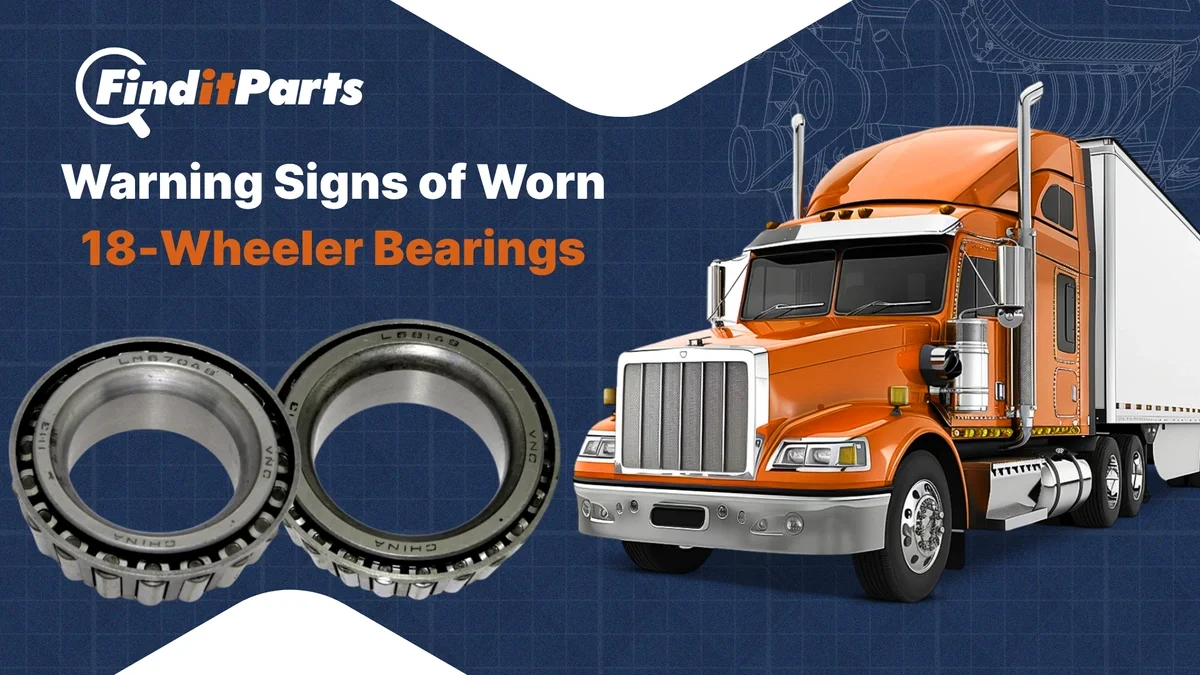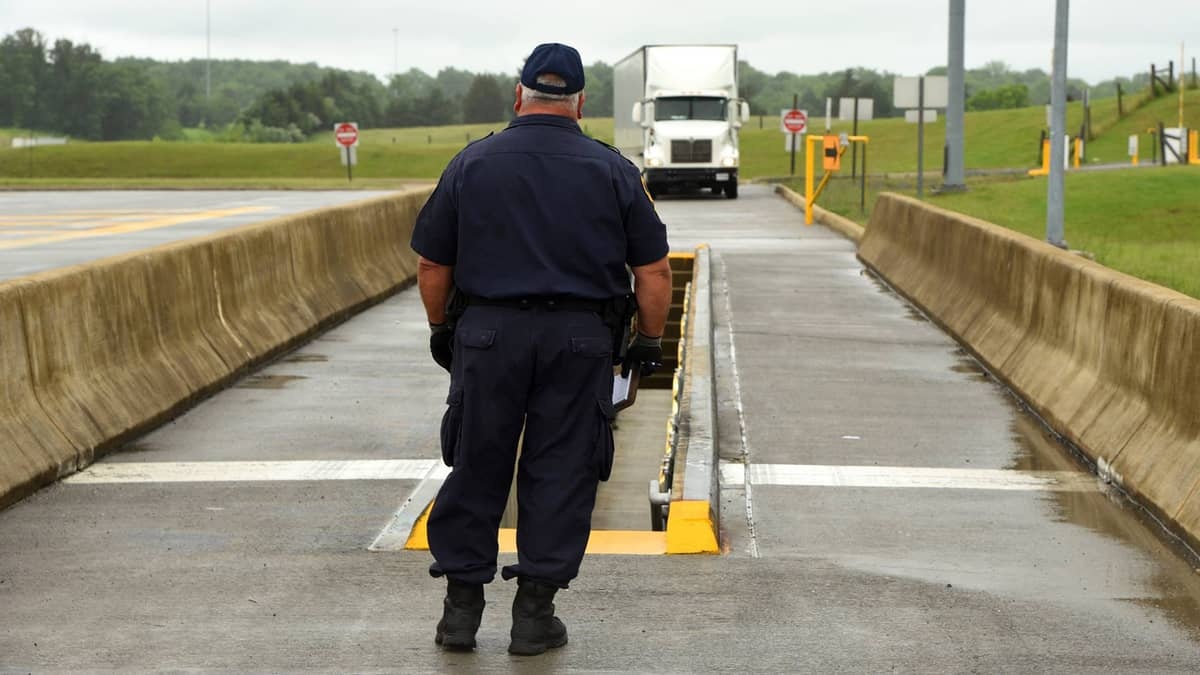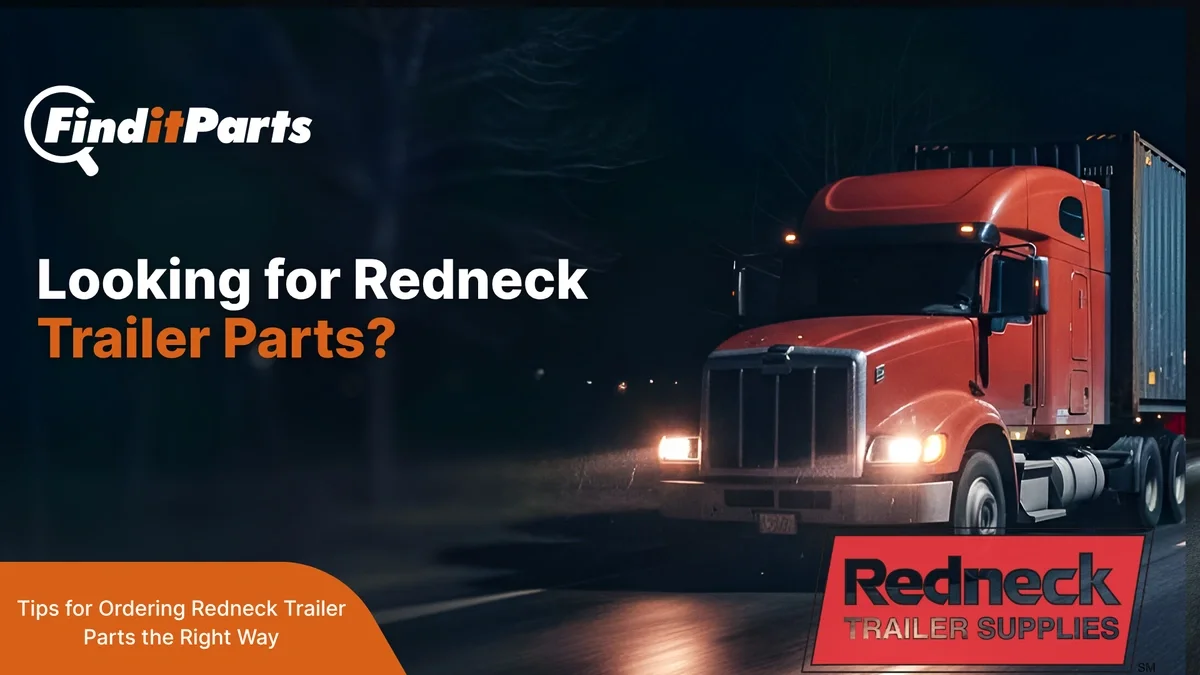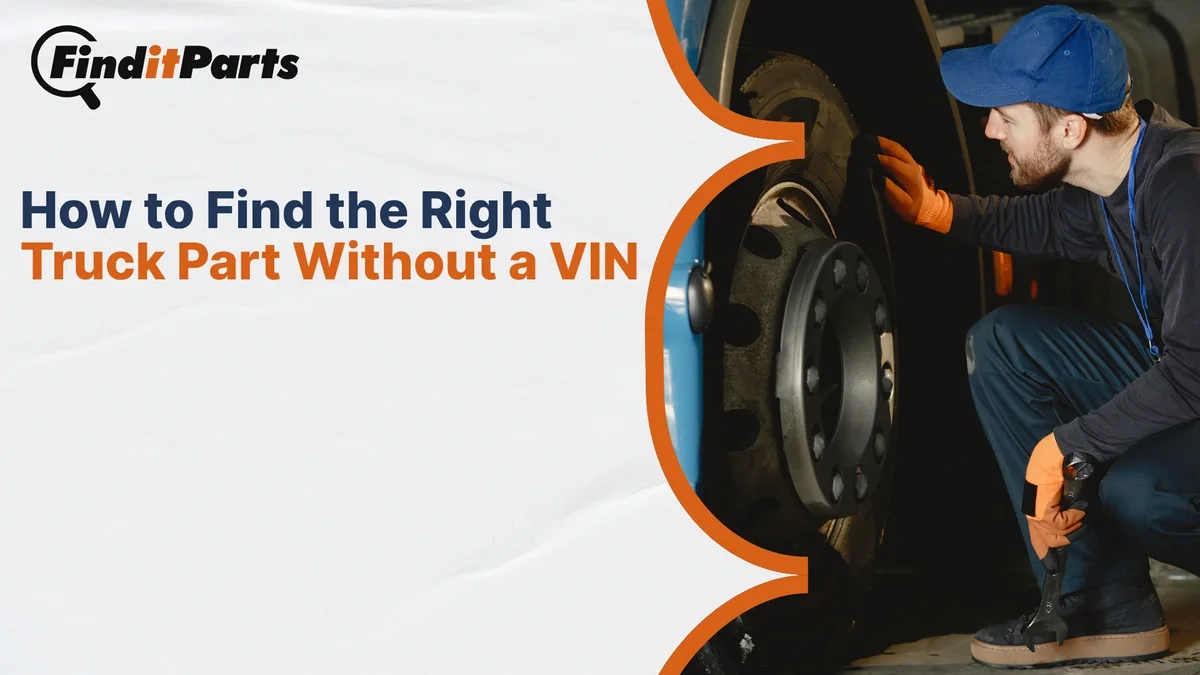Need help? We're here!
(888) 312-8812 Login SignupTop Warning Signs of Worn 18-Wheeler Trailer Bearings
October 31, 2025

Introduction
If your trailer bearings start to fail, you’ll feel it—and usually at the worst time. These small components play a big role in keeping an 18-wheeler moving like it should. They hold the wheel assemblies together, cut down on friction, and help distribute load across axles. When they're in good shape, it's easy to forget they exist. But when they're worn out, they can slow everything down.
Worn trailer bearings mess with more than just a smooth ride. They make your rig work harder, drain fuel economy, and create risks you can’t ignore—like locked hubs or even losing a wheel. What starts as a humming noise can quickly turn into a seized axle. Catching early signs can help avoid costly downtime and bigger problems down the line.
Recognizing the Signs of Wear
Trailer bearings don’t usually quit all at once. They wear down over time, and the signs show up early if you know what to look for. Some signals come while you're driving, others show up during a walk-around or maintenance check. Spotting issues early helps you avoid bigger repairs or roadside failures.
Noises are often the first warning. A high-pitched squeal, grinding sound, or rhythmic humming that matches wheel speed can mean the bearing is running dry or starting to break down. If the noise gets louder when the trailer takes a corner or handles more weight, something’s already going wrong.
There are also physical signs to look out for:
- Heat discoloration near the hub or brake drum
- Grease leaking from behind the wheel seal
- Scoring or damage on the bearing housing
- Wheel end play when lifted, shaken side to side
Just because the trailer jiggles a little doesn’t always mean you’ve got a bearing problem. But consistent wobble in one wheel is a good reason to take a deeper look. One tech told us about catching a front trailer hub that ran hot after just 100 miles. They tore it apart and found metal flakes in the grease. That quick check saved them from a complete failure and a long delay on the highway.
Impact on Performance and Safety
Ignoring bad bearings doesn’t just mean a rougher ride. As the parts wear down, they make it harder for the wheels to spin freely. That increased drag forces the tractor to work harder, wasting fuel and wearing out key components quicker.
More fuel stops aren’t the only cost. Worn bearings also lead to more uneven brake wear and longer stopping distances. That can throw off handling and increase the chance of hydroplaning during wet weather or making emergency stops more dangerous.
The biggest concern, though, is catastrophic bearing failure. If a bearing seizes up while you’re rolling, it can lock the entire wheel. That might mean losing control of the trailer, especially under load. At worst, it could rip the wheel assembly clean off the axle. That’s not just a repair issue—it’s a safety nightmare.
To recap some of the issues worn bearings can cause:
- Loss of fuel efficiency
- Faster brake and tire wear
- Rough handling or trailer sway
- Wheel lockup or separation on the road
Bearings keep your trailer moving safely. Overlooking them can turn a small problem into an expensive and dangerous failure.
Preventive Measures and Regular Maintenance
Staying ahead of bearing issues takes regular inspection, not luck. Whether you’re an owner-operator or the lead tech for a fleet, folding these checks into your existing PM schedule keeps rigs running without unplanned downtime.
Shops typically recommend bearing checks during every wheel-end service or between 12,000 to 25,000 miles. That range depends on the type of roads traveled and average load weights. But don’t wait for the odometer to tell you it’s time. If you see early signs—odd tire wear, noise, or drag—check them right away.
Here are maintenance items to look at during routine checks:
- Check for heat markings or burn discoloration
- Look for oil or grease leaks around hub seals
- Listen and feel for rough spins or bearing click
- Lift axle and test for excessive play
- Clean and re-pack with quality high-temp grease
During walkarounds, scan each hub area for signs of trouble. Use a thermometer gun to spot overheating after a long haul. Any temps that are considerably higher on one wheelend can signal a problem underneath.
Lubrication is another key issue. Grease breaks down under extreme heat, pressure, and speed. Using low-grade or cheap grease shortens bearing life. Stick with a high-temperature grease made for wheel bearings and verify it's compatible during every re-pack cycle. A bit more care on the front end saves a lot of grief later.
When to Replace and How to Choose Quality Bearings
Despite solid maintenance, trailer bearings will eventually wear out. There comes a point where even fresh grease can’t save them. Replace them at the first signs of real breakdown—before they cost you more.
It’s time to replace bearings when you see any of these issues:
- Rust, pits, or score marks on rollers or raceways
- Frequent overheating, even after applying new grease
- Metal flakes, dust, or shavings in the drained grease
- Excess wheel play even after proper torque
Waiting too long can damage hubs, seals, spindles, and brakes—extending both time and parts needed for a full fix. When in doubt, opting for a replacement is usually cheaper than risking a failure.
When you do buy new ones, don’t guess on part numbers or cut corners. Make sure the bearing set matches your axle size, load rating, and type. Tapered roller bearings are common, but specs can vary widely.
Brands like Timken, NTN, and SKF are known names in the field. For example, the Timken SET413 Wheel Bearing Set works well with Meritor axle systems. It includes both inner and outer bearings made to handle serious commercial loads without early wear. This matched set helps pros avoid hunting down separate race parts and reduces install time.
Before you order, check the reference numbers on your old bearings. Most have part numbers stamped into the metal. Use those to cross-check compatibility with your replacement and confirm that the new part fits like it should.
Keep Your Trailer Rolling Without Surprises
If you rely on your trailer to earn, bearings shouldn’t be something you ignore. They may not be as flashy as a new suspension upgrade or brake job, but they’re the silent backbone of every smooth, safe haul.
Listening for changes, sticking to a checkup schedule, and using high-quality replacements can mean the difference between a small afternoon job and a roadside emergency that puts your delivery (and your paycheck) behind. Worn bearings are more than a nuisance—they’re a risk no trucker or fleet manager can afford to take.
Stay sharp, keep your tools ready, and stay ahead of the wear. Your trailer’s uptime—and your bottom line—depend on it.
Ensure your 18-wheeler stays in top shape with proper maintenance for its key systems. Explore our reliable selection of 18-wheeler trailer parts on FinditParts, where we offer trusted components built to perform under load and keep your rig moving. Stay ahead of wear and reduce downtime by choosing the right parts the first time.



